Operation Blue Star
| Line 16: | Line 16: | ||
Gunjeet K. Sra | Gunjeet K. Sra | ||
| − | + | ''' Operation Bluestar, June 1984: ''' It was a political disaster and an unprecedented act in Indian history. Its aftermath and the increased tensions led to assaults on the Sikh community in India. | |
=Sources of this article:-= | =Sources of this article:-= | ||
Revision as of 18:55, 7 July 2015

This is a collection of articles archived for the excellence of their content. |
In brief
India Today, December 29, 2008
Gunjeet K. Sra
Operation Bluestar, June 1984: It was a political disaster and an unprecedented act in Indian history. Its aftermath and the increased tensions led to assaults on the Sikh community in India.
Sources of this article:-
Times of India
1. The Times of India: Jun 7, 2015
5 lesser-known facts
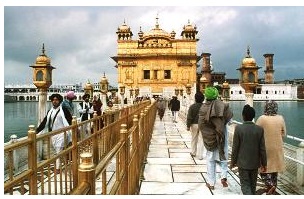
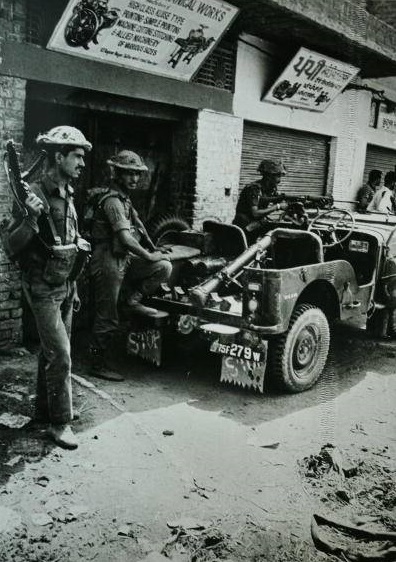
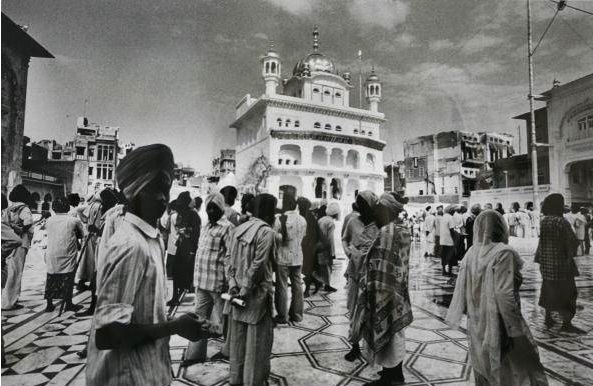
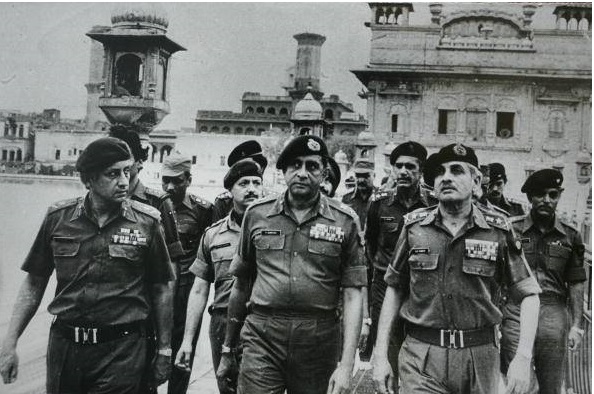
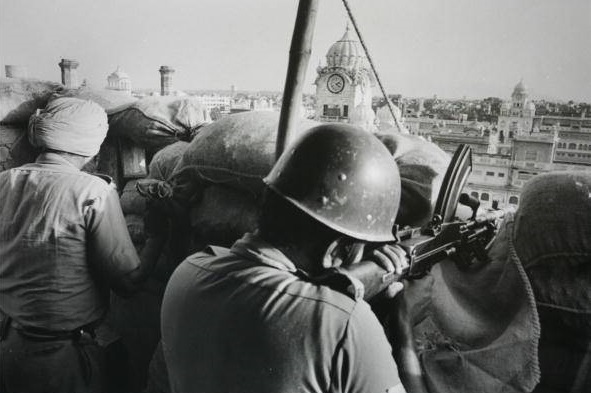
Army gained effective control over Harmandir Sahib or Golden Temple complex on June 7, 1984, with Operation Bluestar, after Khalistani militant Jarnail Singh Bhindranwale fell to bullets on June 6. Five lesser-known facts related to Operation Bluestar:
Army gained effective control over Harmandir Sahib or Golden Temple complex on June 7, 1984, with Operation Blue Star, after Khalistani militant Jarnail Singh Bhindranwale fell to bullets on June 6.
Here are five lesser-known facts related to Operation Blue Star:
1. Operation Blue Star had two components. The first was Operation Metal, which was confined to the Golden Temple complex.
Operation Metal was followed by Operation Shop, wherein security forces raided Punjab's countryside in order to capture suspects.
The second component was Operation Woodrose, launched throughout Punjab to quell militancy.
2. Several people were killed in retaliation to Operation Blue Star. PM Indira Gandhi was assassinated by her two Sikh bodyguards.
General AS Vaidya, the 13th Army chief, who supervised the operation, was shot dead in Pune after his retirement.
AI Flight 182, Kanishka, from Montreal to Delhi was bombed, killing all 329 on board.
3. GOC SK Sinha, who was asked by then PM Indira Gandhi to plan the attack at the Golden Temple, had reservations over the proposal.
He sought premature retirement in 1983 on being superseded by Lt Gen AS Vaidya for the post of Army chief.
4. Bhindranwale's tactical adviser was Maj Gen Shahbeg Singh, noted for his service in training of Mukti Bahini volunteers during the Bangladesh Liberation War. Singh was killed in the operation.
5. More often than not, the success or failure of Operation Blue Star is compared to Operation Black Thunder. The latter was the name given to two operations that took place in the late 1980s to flush out the remaining militants from the Golden Temple.